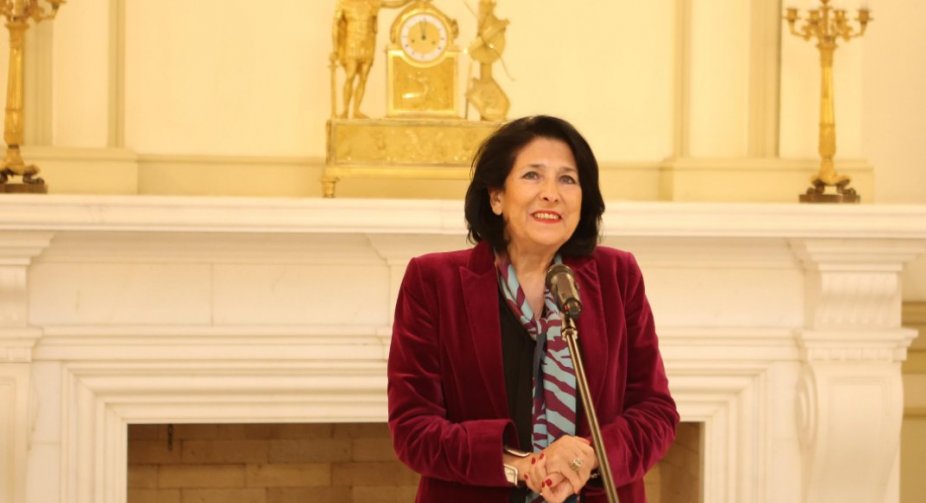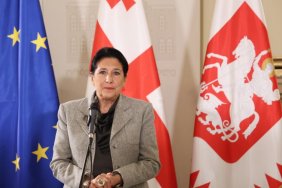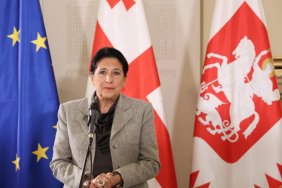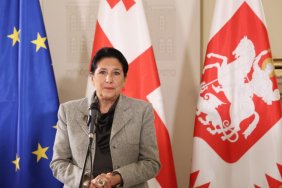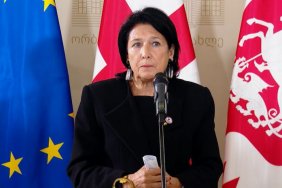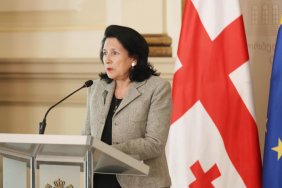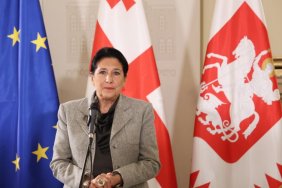Georgian President Salome Zourabichvili on Friday emphasized the urgency of addressing violence against women and femicide during an event dedicated to International Women's Day, labeling such acts as a “direct shame for the country”.
She highlighted such incidents were in “stark contrast” to the nation's cultural identity and shared values before stressing the importance of tackling the issue at its roots, particularly within the educational system.
She also discussed the need to bolster the participation of women in both political and economic spheres and expressed concern over the underrepresentation of women in politics, noting Georgia's lagged behind other European and Asian countries in this regard.
Zourabichvili attributed this disparity to systemic issues such as moral violence, hate speech, and other barriers that she said deter women from entering politics.
Addressing the economic realm, Zourabichvili acknowledged the existing disparities in wages and opportunities for women, particularly in rural areas. She underscored the necessity of implementing measures to ensure equal access to financial resources, including credit, thereby enabling women to leverage their entrepreneurial skills for the country's benefit.
During the ceremony Zourabichvili honored individuals and organizations dedicated to advancing women's rights. Among the awardees were Baia Pataraia, executive director of the Sapari organization, and human rights defender Ana Arganashvili. Recognition was also extended to Eliso Amirejibi and Nato Shavlakadze, founders of the Anti-Violence Network of Georgia, as well as Tamar Museridze, founder of the Vedzeb (I am searching) organization.
